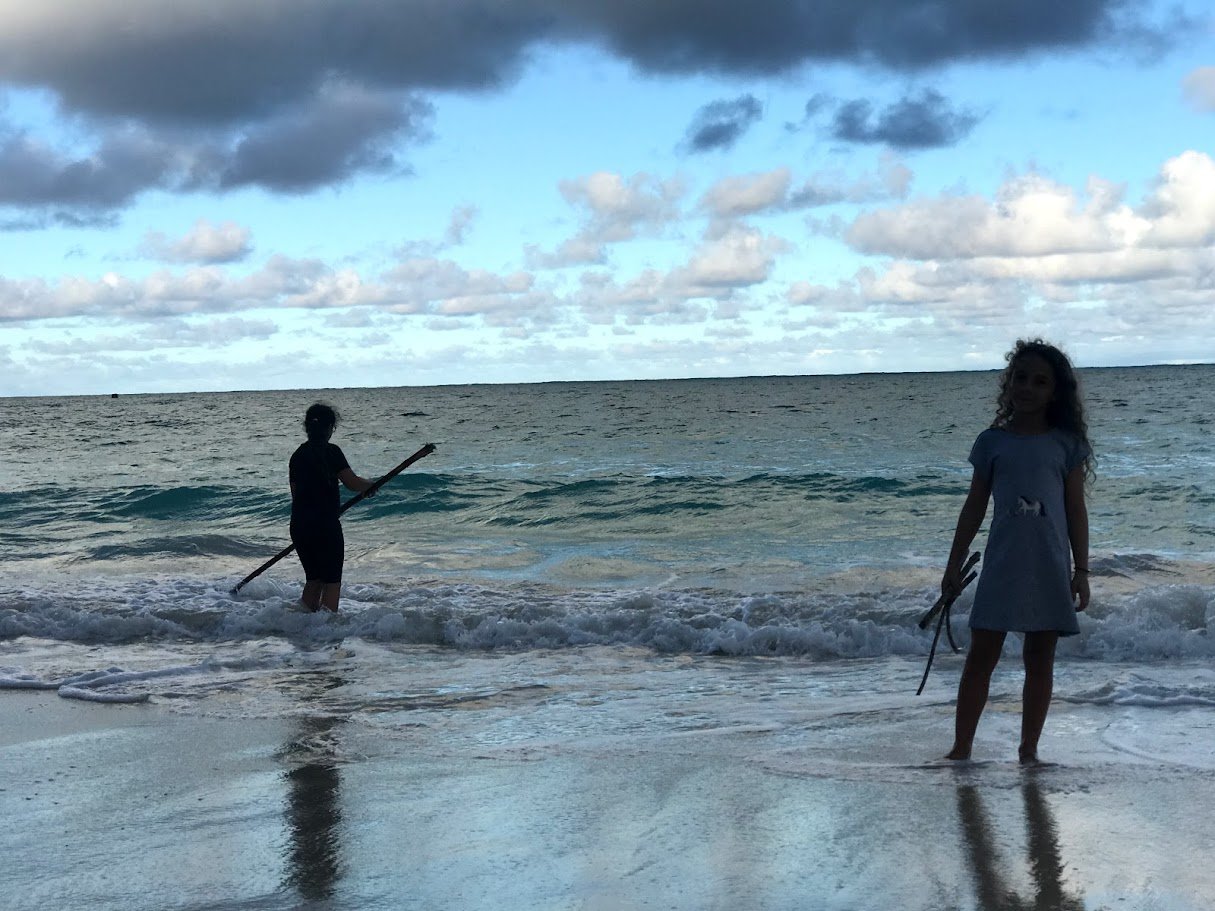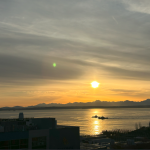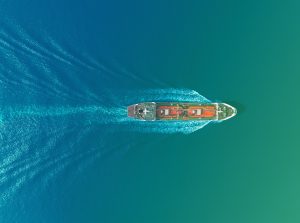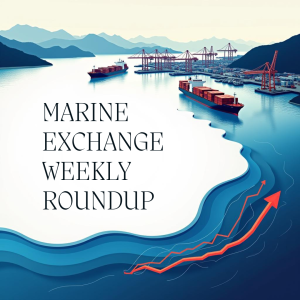
By Patrick Gallagher, Executive Director, Marine Exchange of Puget Sound
As spring kicks into gear, I’m looking at apple blossoms, cherry blossoms, strawberry blossoms, and tomato plants already in the ground (what? – thank you, non-climate change weather patterns/#DOGEcuts/#sorrynotsorry).
We’re holding steady on ship counts this week, and I’ll take it just because ship counts have been somewhat in the near-term toilet for a couple of months — but the stories beneath the numbers show a dynamic and shifting maritime landscape. Cruise ships are returning to Seattle, but I’m really curious about next year’s bookings because almost all of these trips were booked at least 6 months ago when things made more sense. and the dollar still looked like the world currency. Next year is going to tell us a lot about how people feel about the international economy.
I, myself, hit the “I believe” button and dropped a ton of money on Spring Break to Hawaii this past week. Like the tattoo says, I have NO REGERTS.
Yes – I spent $215 one morning on omelets and bread in Kauai and couldn’t help but wonder if this is a harbinger of the future where a single egg costs $57 and flour is milled by hand in pure 1890’s style. – the last time America was great.
Vessel Traffic: Flat Numbers
While the overall ship count remained flat this week at 38 vessels, a few highlights stood out:
- Cruise season officially kicked off with the arrival of two passenger vessels.
- Bulk cargo arrivals increased by 33%.
- Container ship calls fell by 40%, continuing the erratic signals from global freight patterns.
Vessel Category Snapshot
| Category | Last Week | This Week | % Change |
|---|---|---|---|
| Bulk | 6 | 9 | +33% |
| Container | 14 | 10 | -40% |
| Passenger | 0 | 2 | +200% |
| Tug/ATB | 2 | 3 | +33% |
| Others | – | – | Mostly flat or steady |
Port Call Highlights
Notably, Aberdeen, Ferndale, and Indian Island each saw notable upticks in traffic. Port Angeles, on the other hand, saw no vessel tie-ups this week.
Legislative Front: A Strong Showing in Olympia
This was a pivotal week in the state legislature, with the Opposite House Cutoff passing and several key bills we supported advancing to the Governor’s desk.
Legislation We Support – Advancing Forward
- SB 5191 – Paid family leave for dockworkers
- SB 5281 – Extends vessel permits
- HB 1414 – Improves student career access
- HB 1167 & HB 1264 – Support maritime workforce & ferry worker salaries
Legislation We Opposed – Contained or Dead
- HB 1689 – Emissions restrictions at berth — dead
- SB 5794 – Public Utility Tax and stevedore tax proposals are being removed, avoiding steep cost increases
With the state still facing a budget deficit, a special session may follow the scheduled April 27 adjournment to reach a final agreement.
Technology & Operations Update
- AIS Coverage: Our 7 tower network is fully operational, with a minor outage quickly resolved. The Ellis tower radio is now back online.
- System Health: Ongoing database optimization continues. No anomalies or cybersecurity threats have been detected.
On the Horizon
- Contributing to the Tribal Fisheries Lost Gear Committee
- Hosting the Elliott Bay Design Group for a social/info session
- Attending the SEASTR Fundraiser in Port Townsend
- Preparing for the Harbor Safety Committee meeting on May 7th
🗓 Click here for the meeting link.
Spotlight of the Week: Hawaii, Trade Wars, and Monetary Systems
Last week I vacationed in Hawaii, reconnecting with longtime maritime colleagues. Over sunset conversations, the topics drifted from sea stories to the fragility of island economies — especially places like Hawaii that import over 90% of their food and feel the sting of trade uncertainty more acutely than most.
To wind down, I revisited Barry Eichengreen’s Globalizing Capital: A History of the International Monetary System. It opens with a thought-provoking reminder:
“The international monetary system is the glue that binds national economies together… It is impossible to understand the operation of the international economy without also understanding its monetary system.”
As we navigate uncertain global tides — from tariffs to shipping slowdowns — it’s worth remembering that the health of our maritime system is inextricably tied to how well we understand and adapt to these broader economic forces.







No comment yet, add your voice below!